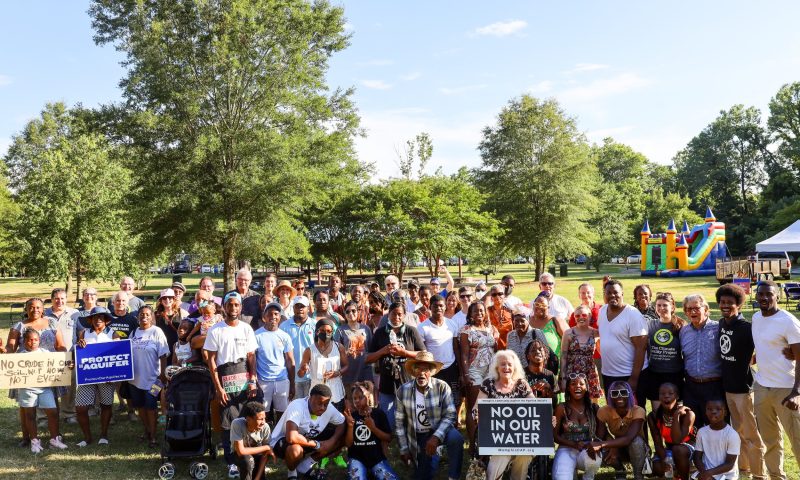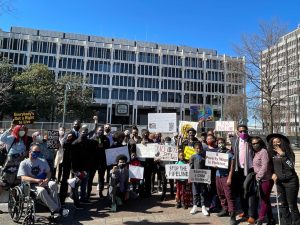
Memphis Community Against Pollution (MCAP) was founded in 2020 in response to decades of environmental injustice. The Black-led nonprofit seeks a clean and healthy environment, particularly in southwest Memphis where residents suffer some of the city’s worst air quality, with cancer rates four times the national average. Through education, community organizing, and legal action, MCAP empower residents, especially disproportionately burdened Black and brown communities, to advocate for their right to clean air and water, hold corporations accountable for pollution, and endorse clean energy solutions. MCAP fought and beat Valero Energy Corporation and Plains All American’s Byhalia Connection Pipeline, a proposed crude oil pipeline set to cut through southwest Memphis as well as over the Memphis Sand aquifer, which provides water to the Memphis metropolitan area. Since their Byhalia victory, MCAP has challenged numerous sources of pollution that threaten millions of citizens across the region.

Memphis Community Against Pollution unites community members and partners to pass legislation that will stop projects like the now-canceled Byhalia Connection Pipeline.
According to MCAP co-founder Justin J. Pearson, Southwest Memphis is where companies come, pollute, and leave — or continue to pollute without any recourse or remediation. MCAP’s grassroots movement works to protect the aquifer and to bring transparency to Tennessee Valley Authority’s practices, such as storing coal ash in pools and landfills that have proven to poison the environment. In 2022, they pressured Memphis authorities to deny TVA a new, never-ending contract. After the EPA identified South Memphis at high risk for cancer due to ethylene oxide exposure from Sterilization Services of Tennessee, MCAP pushed Shelby County to conduct thorough air quality tests and community health testing with a fully staffed and funded air program. TVA now plans to build another methane gas plant in South Memphis, which MCAP is petitioning the federal government to halt. Elon Musk’s new Memphis AI facility (xAI), the world’s largest supercomputer, and its vast demands of local water and power are squarely on MCAP’s radar.